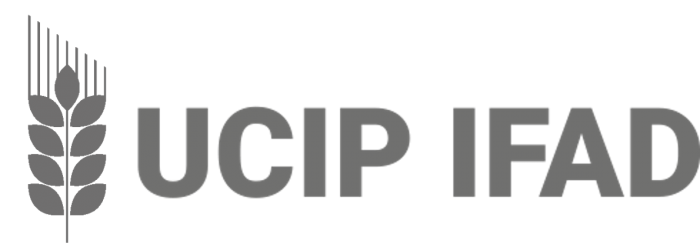TERMS OF REFERENCE
Project impact survey at completion
Project: Rural Financial Services and Marketing Programme (RFSMP)
Assignment duration: from January to March
BACKGROUND INFORMATION
The Rural Financial Services and Marketing Programme (RFSMP), the fourth IFAD funded programme in Moldova, has started in February 2009 and was envisaged to be finalized in March 2014. Currently the programme is about to reach the end of its implementation period.
The goal of RFSMP is to reduce the rural poverty in Moldova through creating enabling conditions for the poorer and poorest members of rural society to increase their incomes through greater access to markets and employment. The programme aims to improve the participation and employment of the poor in income increasing activities related directly and indirectly to development of Moldovan horticulture value chain.
IMPACT ASSESSMENT
The main objective of the assignment is to assess the impact of project interventions on beneficiaries. The assessment will compare socio-economic situation of beneficiaries and non-beneficiaries at project start and completion. The aim is to understand and quantify the impact of various project components individually and collectively. In addition, the assessment will measure the project impact on poverty, livelihood and nutrition of direct and indirect beneficiaries. Impact of poverty will be assessed based on proxy indicators such as household assets and expenditure. Impact on nutrition will be assessed using the Dietary Diversity indicator. The Logframe indicators (see Annex 1) will serve as a basis for the assessment by project component. Information on outputs of the project as of 30.09.2013 is presented in Annex 2. Information on latest outputs will be provided.
Available baseline data will be provided by the project CPIU. When baseline data is not available, these should be gathered from the secondary data sources such as censuses, Living Standards Measurement Surveys (LSMS), etc. or by using the ‘recall’ method (coinciding with the project start time) for both beneficiaries and the control group.
The survey should be conducted using face-to-face interviews of the target group – households and individuals.
Control group: In order to better understand the attribution of the project interventions on beneficiaries, a control group (counterfactual) will also be used. This group will be identified based on similar characteristics of the beneficiaries (nearby locations with similar demographics). In the case of the rural financial services component, as an example, the persons whose loan application was rejected can serve as the control group. Statistical techniques such as propensity score matching, double difference, etc. can be used to select the control group. However, care would be taken to ensure that this group does not include indirect project beneficiaries.
Sampling strategy: The sample size will be calculated using standard statistical formulae, using 95 per cent confidence level and with the margin of error at 5 per cent as the first choice. The sample will include both beneficiaries and non-beneficiary (control group) households. The sample will ensure proportionality and representativeness of the different project components. As a guide, the minimum sample size for each component can be taken to be as under:
- Value chain development: 300 beneficiary HHs/individuals; 150 control group HHs
- Rural financial services: 350 beneficiary HHs/individuals/SMEs; 175 control group HHs/individuals/SMEs
- Market infrastructure: 300 beneficiary HHs; 150 control group HHs
Thus, the minimumtotal sample size for the project will be: 950 beneficiary households and 475 control group households. The sample size should also take into account the non-response rate, based on previous experience in the country, or 10 per cent, as a benchmark.
If an overall frame of households is available, then the survey could use one-stage or two-stage random stratified sampling design. If only separate frames of households are available for each area, then only two-stage sampling would be used. Selection of households, if an accurate list of all households in the community is available, will be done using the household list method. Alternatively, the community or village can be divided into ‘plots’ and households selected from each plot. If none of these methods are possible, then the random walk method should be used.
For more details see:
OFFER CONTENT
Interested consulting companies should submit their applications consisting of the following documents/information to demonstrate their qualifications:
1. Technical Proposal will include: the profile of the company, relevant experience for the assignments, staffing (CV of each team member), proposed methodology to perform the assessment, the size of the sample to be analyzed, the work plan (activities) and resources (including number of person-day);
2. Financial proposal will obligatory include the consulting fee and operational expenditures related to the assignment. The cost of services must be provided in USD at 0% VAT.
THE EVALUATION CRITERIA
The consulting company will be selected in accordance with the procedures set out in the current edition of IFAD Procurement Guidelines, based on selection method “Quality and Cost-Based Selection (QCBS)”, the final score obtained by each company being composed of 70% of the score for the parameter „Quality” (evaluated based on technical bid) and 30% – score obtained for the parameter „Cost” (established based on financial bid). The financial offer will be opened only if the provided technical offer will pass the minimum technical score of 60 points.
CONDITIONS FOR OFFER’S SUBMISSION
To be considered interested companies should submit their proposal (technical and financial offer) in original and a copy in separate sealed envelopes. Each envelope will consist of the technical and financial offer sealed in separate envelopes as well ( a total of 2 envelopes, each with 2 envelopes inside). Offers to be submitted to the following address: CPIU-IFAD, 162, Stefan cel Mare si Sfint blvd., office 1303, MD-2004 Chisinau, Republic of Moldova no later than January 10 2014, 15:00. Any request for clarification must be sent in writing by standard electronic communication to igor.spivacenco@ifad.mdand office@ifad.md.



